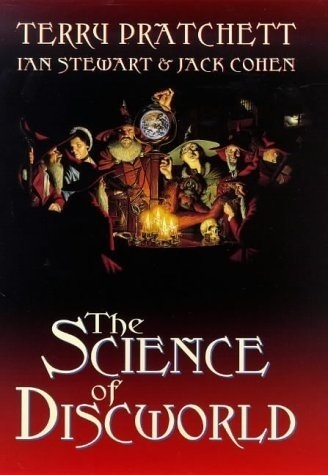










Terry Pratchett needs no introduction. Ian Stewart has written fine nonfiction books on mathematics, and he and Jack Cohen collaborated on the quirkily inventive pop-science titles The Collapse of Chaos and Figments of Reality. What on earth, or on Discworld, are they all doing in the same book? Pratchett provides a very funny 30,000-word novella about Discworld science, beginning in the High Energy Magic faculty of Unseen University and leading his eccentric wizards to investigate an alien cosmos where there's no magic to keep things going. This is the Roundworld universe--ours. The key point: much that's true only on Discworld (eg: that suns orbit planets and not vice-versa) was once believed on Earth and the wizards' comic misunderstandings echo the history of real science ... Unusually, Pratchett's story is split into chapters and in between his chapters Stewart and Cohen wittily discuss the concepts underlying the fiction, from the Big Bang through stellar formation to life and evolution. Much of the science we know, they cheerfully insist, is "lies-to-children": good stories that are mostly untrue, like thinking of atoms as tiny solar systems. Discworld operates by narrative plausibility and so does human thought even when our Roundworld universe disagrees. Between the laughs, The Science of Discworld is a provocative, informative book that'll make you think about what you think you know. --David Langford

